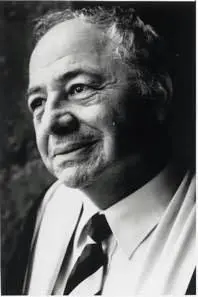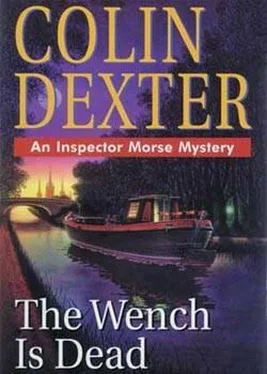Colin Dexter - The Wench Is Dead
Здесь есть возможность читать онлайн «Colin Dexter - The Wench Is Dead» весь текст электронной книги совершенно бесплатно (целиком полную версию без сокращений). В некоторых случаях можно слушать аудио, скачать через торрент в формате fb2 и присутствует краткое содержание. Жанр: Детектив, на английском языке. Описание произведения, (предисловие) а так же отзывы посетителей доступны на портале библиотеки ЛибКат.
- Название:The Wench Is Dead
- Автор:
- Жанр:
- Год:неизвестен
- ISBN:нет данных
- Рейтинг книги:4 / 5. Голосов: 1
-
Избранное:Добавить в избранное
- Отзывы:
-
Ваша оценка:
- 80
- 1
- 2
- 3
- 4
- 5
The Wench Is Dead: краткое содержание, описание и аннотация
Предлагаем к чтению аннотацию, описание, краткое содержание или предисловие (зависит от того, что написал сам автор книги «The Wench Is Dead»). Если вы не нашли необходимую информацию о книге — напишите в комментариях, мы постараемся отыскать её.
The Wench Is Dead — читать онлайн бесплатно полную книгу (весь текст) целиком
Ниже представлен текст книги, разбитый по страницам. Система сохранения места последней прочитанной страницы, позволяет с удобством читать онлайн бесплатно книгу «The Wench Is Dead», без необходимости каждый раз заново искать на чём Вы остановились. Поставьте закладку, и сможете в любой момент перейти на страницу, на которой закончили чтение.
Интервал:
Закладка:
'How long will you be, sir?'
'How long? Not sure, Lewis. It's my lucky day, though, isn't it? So I may be a little while.'
It was half an hour later that Morse emerged to find Lewis chatting happily to one of the ambulance-men about the road-holding qualities of the Lancia family.
'All right, then, sir?'
'Er – well. Er… Look, Lewis! I've decided to stay in Derby overnight.'
Lewis's eyebrows rose.
'Yes! I think – I think I'd like to be there when they take those photographs – you know, in, er… '
‘I can't stay, sir! I'm on duty tomorrow morning.'
'I know. I'm not asking you to, am I? I'll get the train back – no problem – Derby, Birmingham, Banbury – easy!'
'You sure, sir?'
'Quite sure. You don't mind do you, Lewis?'
Lewis shook his head. 'Well, I suppose, I'd better-'
'Yes, you get off. And don't drive too fast!'
'Can I take you – to a hotel or something?'
'No need to bother, I'll – I'll find something.'
'You look as though you've already found something, sir.'
'Do I?'
As the Lancia accelerated along the approach road to the Ml (South) Lewis was still smiling quietly to himself, recalling the happy look on Morse's face as he had turned and walked once more towards the automatic doors.
Epilogue
The name of a man is a numbing blow from which he never recovers
(Marshall McLuhan, Understanding Media)
On the morning of Friday, 11th January (he had resumed duties on New Year's Day) Morse caught the early Cathedrals' Express to Paddington. He was programmed to speak on Inner City Crime at 11 a.m. at the Hendon Symposium. Tube to King's Cross, then out on the Northern Line. Easy. Plenty of time. He enjoyed trains, in any case; and when Radio Oxford had announced black ice on the M40, his decision was made for him; it would mean, too, of course, that he could possibly indulge a little more freely with any refreshments that might be available.
He bought The Times and the Oxford Times at the bookstall, got a seat at the rear of the train, and had solved The Times crossword by Didcot. Except for one clue. A quick look in his faithful Chambers would have settled the issue immediately; but he hadn't got it, and as ever he was vexed by his inability to put the finishing touch to anything. He quickly wrote in a couple of bogus letters (in case any of his fellow-passengers were waiting to be impressed) and then read the letters and the obituaries. At Reading he turned to the Oxford Times crossword. The setter was 'Quixote'; and Morse smiled to himself as he remembered 'Waggie' Greenaway finally solving the same setter's 'Bradman's famous duck (6)' and writing in DONALD at 1 across. Nothing quite so amusing here – but a very nice puzzle. Twelve minutes to complete. Not bad!
Morse caught a subliminal glimpse of 'Maidenhead' as the train sped through, and he took a sheaf of papers from his briefcase, first looking through the alphabetical list of those who would be attending the conference. Nobody he knew in the A-D range, but then he scanned the E-F:
Eagleston
Ellis
Emmett
Erskine
Farmer
Favant
Fielding
Tom Eagleston, yes; and Jack Farmer, yes; and…
Morse stopped, and looked again at the middle of the three delegates in the Fs. The name was vaguely familiar, wasn't it? Yet he couldn't remember where… Unusual name, though. Morse's eye continued down the list – and then he remembered. Yes! It was the name of the man who had been walking along the Oxford Canal at the time when Joanna Franks was murdered – when Joanna Franks was supposedly murdered; the man, perhaps, who had been traced to the Nag's Head where he'd signed the register. A mystery man. Maybe not his real name at all, for the canal had been full of men who used an alias. In fact, as Morse recollected, two of the crew of the Barbara Bray itself had done so: Alfred Musson, alias Alfred Brotherton; Walter Towns, alias Walter Thorold. It might well be of some deep psychological significance that criminals sometimes seemed most unwilling to give up their names, even if this involved a greater risk of future identification: Morse had known it quite often. It was as if a man's name were almost an intrinsic part of him; as if he could never shed it completely; as if it were as much part of his personality as his skin. Musson had kept his Christian name, hadn't he? So had Towns.
Morse spent the rest of the journey looking idly out of the window, his brain tidying up a few scattered thoughts as the train drew into Paddington: Donald Bradman -Don Bradman, the name by which everyone recognized the greatest batsman ever born; and F. T. Donavan, the greatest man in all the world; and…
Ye Gods!!
The blood was running cold through Morse's limbs as he remembered the man who had identified the body of Joanna Franks; the man who had been physically incapable (as it seemed!) of raising his eyes to look into the faces of the prisoners; the man who had held his hands to his own face as he wept and turned his back on the men arraigned before the court. Why did he do these things, Morse? Because the boatmen might just have recognized him. For they had seen him, albeit fleetingly, in the dawn, as 'he had made to get further on his way with all speed', Donald Favant! – or Don Favant, as he would certainly have seen himself.
Morse wrote out those letters D-O-N-F-A-V-A-N-T along the bottom margin of the Oxford Times; and then, below them, the name of which they were the staggering anagram: the name of F T DONAVAN – the greatest man in all the world.
Colin Dexter

Colin Dexter lives in Oxford. He has won many awards for his novels and in 1997 was presented with the CWA Cartier Diamond Dagger for outstanding services to crime literature.

[1] On the morning of Saturday, June 11th, 1859, Joanna Franks, carrying two small trunks, bade her farewell to Mrs Russell in Runcorn Terrace, and made her way by barge from Liverpool to Preston Brook, the northern terminus of the Trent and Mersey Canal, which had been opened some eighty years earlier. Here she joined one of Pickford & Co.'s express (or 'fly') boats [1] which was departing for Stoke-on-Trent and Fradley Junction, and thence, via the Coventry and Oxford Canals, through to London on the main Thames waterway. The fare of sixteen shillings and eleven pence was considerably cheaper than the fare on the Liverpool-London railway line which had been opened some twenty years earlier. Joanna was an extremely petite and attractive figure, wearing an Oxford-blue dress, with a white kerchief around her neck, and a figured silk bonnet with a bright pink ribbon. The clothes may not have been new; but they were not inexpensive, and they gave to Joanna a very tidy appearance indeed. A very tempting appearance, too, as we shall soon discover. The captain of the narrow-boat Barbara Bray was a certain Jack 'Rory' Oldfield from Coventry. According to later testimony of fellow boat-people and other acquaintances, he was basically a good-natured sort of fellow, of a blunt, blustery type of address. He was married, though childless, and was aged 42 years. The fellow-members of his crew were: the 30-year-old Alfred Musson, alias Alfred Brotherton, a tall, rather gaunt figure, married with two young children; Walter Towns, alias Walter Thorold, the 26-year-old illiterate son of a farm-labourer, who had left his home town of Banbury in Oxfordshire some ten years earlier; and a teenaged lad, Thomas Wootton, about whom no certain facts have come down to us beyond the probability that his parents came from Ilkeston in Derbyshire. The Barbara Bray left Preston Brook at 7.30 p.m. on Saturday, 11th June. At Fradley Junction, at the southern end of the Mersey Canal, she successfully negotiated her passage through the locks; and at 10 p.m. on Sunday, 19th June, she slipped quietly into the northern reaches of the Coventry Canal, and settled to a course, almost due south, that would lead down to Oxford. Progress had been surprisingly good, and there had been little or no forewarning of the tragic events which lay ahead for the Barbara Bray, and for her solitary paying passenger – the small and slimly attractive person of Joanna Franks, for whom such a little span of life remained.
A 'fly' boat travels round the clock, with a double crew, taking shifts, with horses exchanged at regular intervals along the canals.
Интервал:
Закладка:
Похожие книги на «The Wench Is Dead»
Представляем Вашему вниманию похожие книги на «The Wench Is Dead» списком для выбора. Мы отобрали схожую по названию и смыслу литературу в надежде предоставить читателям больше вариантов отыскать новые, интересные, ещё непрочитанные произведения.
Обсуждение, отзывы о книге «The Wench Is Dead» и просто собственные мнения читателей. Оставьте ваши комментарии, напишите, что Вы думаете о произведении, его смысле или главных героях. Укажите что конкретно понравилось, а что нет, и почему Вы так считаете.












